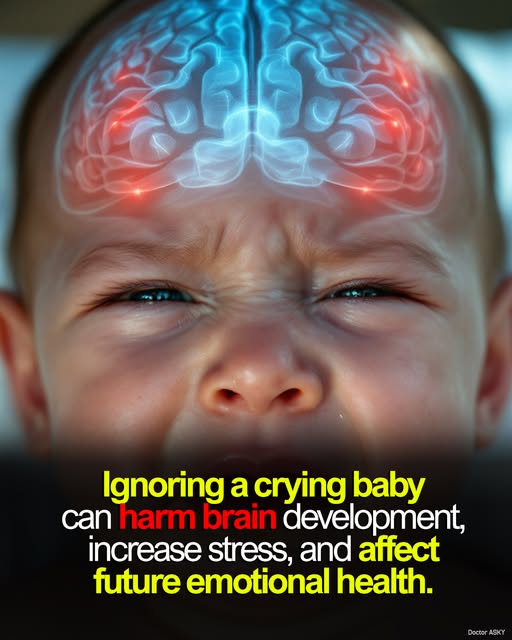Some parents believe that letting a baby “cry it out” during sleep training helps them become more independent. The method involves allowing a baby to cry for certain periods without comforting them, in hopes they will eventually self-soothe and fall asleep on their own. However, recent studies suggest that this approach might carry emotional and developmental risks, especially for younger infants.
Researchers have found that extended periods of unsoothed crying can raise stress hormone levels in babies. Elevated cortisol levels, when repeated over time, may affect brain development and emotional regulation later in life. Babies depend on caregivers not only for basic needs but also for comfort and reassurance. When those emotional needs go unmet, it may create feelings of insecurity and anxiety, even if not immediately visible.
Attachment theory supports the idea that responsive parenting—comforting a crying baby—strengthens the bond between parent and child. A secure attachment formed during infancy is linked to better mental health, confidence, and social skills in later years. While short-term crying may not cause long-term damage in all cases, repeatedly ignoring a baby’s distress could impair their sense of safety and trust.
Parents facing sleep challenges are encouraged to consider gentler sleep strategies such as gradual withdrawal or soothing routines. Every child is different, and what works for one may not suit another. Consulting a pediatrician or sleep specialist can provide personalized and developmentally appropriate advice.
Disclaimer: This article is for informational purposes only and does not constitute medical or parenting advice. Always consult with a qualified pediatrician or child development expert before making decisions related to your baby’s sleep or emotional care.
